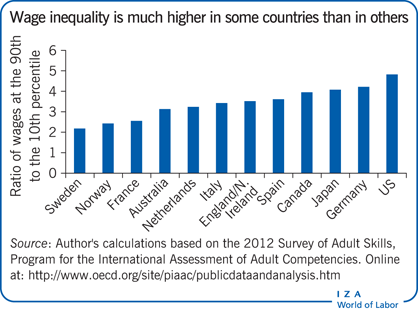Elevator pitch
Policymakers in many OECD countries are increasingly concerned about high and rising inequality. Much of the evidence (as far back as Adam Smith’s The Wealth of Nations) points to the importance of skills in tackling wage inequality. Yet a recent strand of the research argues that (cognitive) skills explain little of the cross-country differences in wage inequality. Does this challenge the received wisdom on the relationship between skills and wage inequality? No, because this recent research fails to account for the fact that the price of skill (and thus wage inequality) is determined to a large extent by the match of skill supply and demand.

Key findings
Pros
Skills matter for wages at the individual level: skilled workers have, on average, higher wages than unskilled workers.
Differences in skills can explain a significant share of the wage gap between certain socio-economic groups.
Changes in the demand for skills, driven by technological change, globalization, population aging, and organizational changes, have increased the return to skill and, thereby, wage inequality.
Wage inequality tends to be lower in countries that are better at meeting the demand for skills.
Cons
Differences in skills and in their distribution account for only a small fraction of differences in wage inequality between countries.
Differences in the prices of skills (or how skills are rewarded) account for a much larger proportion of cross-country differences in wage inequality.
The prices of skills are determined, at least in part, by labor market institutions, which have an important impact on the distribution of wages.
A large portion of cross-country differences in wage inequality remains unexplained by skills or skill prices.